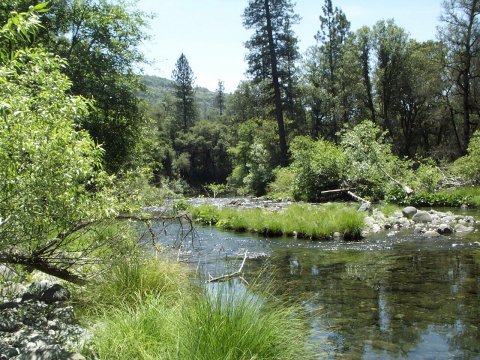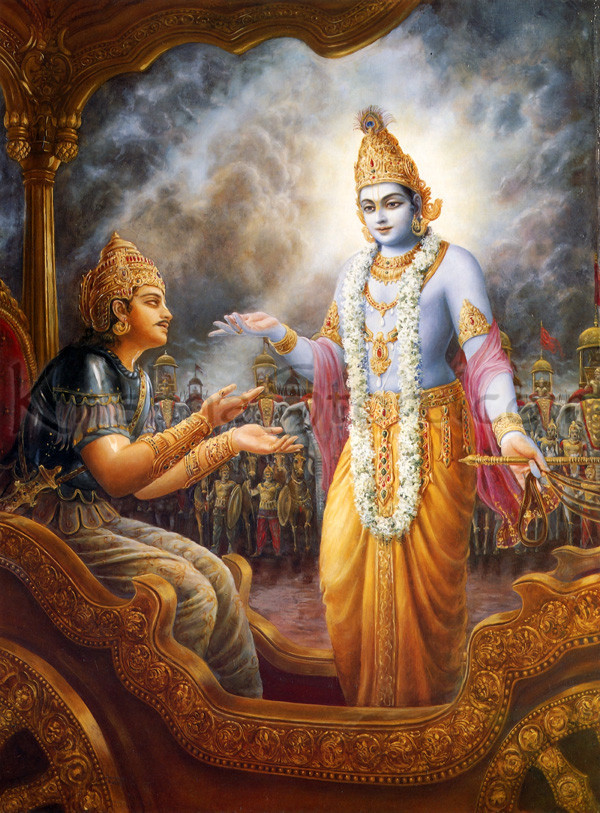A homeless fellow has been encamped across from the meditation spot along Little Chico Creek, which only a few years ago marked the periphery of this town.
 Development has spread to within a few hundred meters. Directly behind the dying sycamore under which I’ve taken sittings for years, the new, nearly completed courthouse, a monstrosity of architectural ill fittingness, stands alone in the middle of the field.
Development has spread to within a few hundred meters. Directly behind the dying sycamore under which I’ve taken sittings for years, the new, nearly completed courthouse, a monstrosity of architectural ill fittingness, stands alone in the middle of the field.
A decade ago, the sycamore magnificently anchored wide expanses of fields stretching to the foothills and canyon a few miles beyond town. The area was teeming with life. There were long-eared rabbits, coyotes, avian species such as quail and pheasant as well as birds of prey, and rattlesnakes for which you had to watch your step.
Now the massive, bifurcated trunk no longer gleams in the sun, and some of its great limbs have died and fallen off, leaving the sycamore a shrinking visage and sad vestige of its former self.
Naturally I’ve wondered what the metaphysical meaning of the slow-motion death is. I’ve come to feel it signifies the suffocation of the earth and humanity. The meditations here, while still salubrious, aren’t the sublime states of union with earth and sky, humanity and cosmos that they once were. Is comparison, which is death to meditation, beginning to creep in?
He’s an interesting fellow, my homeless friend. He’s got a good brain, knows everything that’s going on in town, and is well informed about world events. Always decently dressed, he’s proud of the good stuff he’s found through dumpster diving. For example his high-topped, gore-tex boots that enable him to stand in the shallows or wade across the creek (when it’s lower than it is presently) without his feet getting wet.
Trained as an electrician, he once pointed to the monster houses that now mar the ridge along the entrance to the canyon of ‘Upper Park.’ “I’ve wired and installed alarms in some of those homes,” he matter-of-factly said.
One day as I was leaving, he off-handedly told me it was his 40th birthday. There was no detectable self-pity, but I couldn’t help but feel sorry for him.
I’ve asked him why he lives in a makeshift camp, enduring furious storms and freezing temperatures, but he won’t or can’t say. He’s always on the move. Recently he announced that he’d found a place to live in town, but it’s not clear whether he’s still sleeping on the bank of the stream.
On this day, just after I begin my sitting, he appears through the thicket. “I’d like to talk to you about a project I’m working on,” he says. Ok, I reply. “Not now, I have to go somewhere. Will you be here tomorrow?” You know you’re an outlier when a homeless guy gives you the feeling that he’s got more important things to do!
A sentence by a religious philosopher I read today strikes me as both profoundly true and yet irrelevant to the world as it is: “There is an action that has no cause, no motive, and therefore is immeasurable and of  essence.”
essence.”
What is that strength? If it is “the strength in a mountain, in a river, in a tree,” then why is it not in man? Why do so few feel it, and even fewer live it? (I feel amongst the former, but not the latter.)
One feels it in the stream that surges by after a storm; or, more quietly and mysteriously, in the great oak at the far entrance to Lower Park that has stood for hundreds of years, its acorns supplying the staple food for the Native Americans here.
Having experienced essence many times, I’m sure beyond reasonable doubt that this strength is real. Indeed, the only question for me is whether one can, without goal, get the ‘me’ out of the way and quiet the mind enough for re-experiencing it again today.
Therefore I deeply concur: “That strength is in the human being when every form of desire and will have completely ceased.”
Again however, why is it so rarely in human beings? And what is the relationship of that strength to being a ‘jivamukta’—a ‘liberated soul?’
In the Bhagavadgita, a dialogue between Arjuna and Krishna takes places in which Arjuna asks Krishna about the liberated man. “How does such a person live, how does he act, how does he eat and sleep?”
“Outwardly,” Krishna replies, “he is the same as everybody else, he eats and sleeps and lives like them. And yet he is totally different, because he does not do any of these things for the same reason as the ordinary man. There is a dimensional difference in his consciousness.”
“One senses it in his presence, but it is not possible to put it in words. What one can put into words are only the outer actions, the words that one heard, the thoughts that one had, and so on. One cannot convey the state of mind or consciousness from which those words emanated. It is something that one senses between the lines.”
Certainly a liberated soul is a person who lives without fear, worry and suffering—which seems impossible to me except during a state of negation in meditation.
How can one be a liberated soul in this godforsaken culture? Perhaps moving in that direction with every fiber of one’s being is the only way a heart and soul can inwardly survive and thrive now.
At least, it’s the only way I can see one can.
Martin LeFevre

